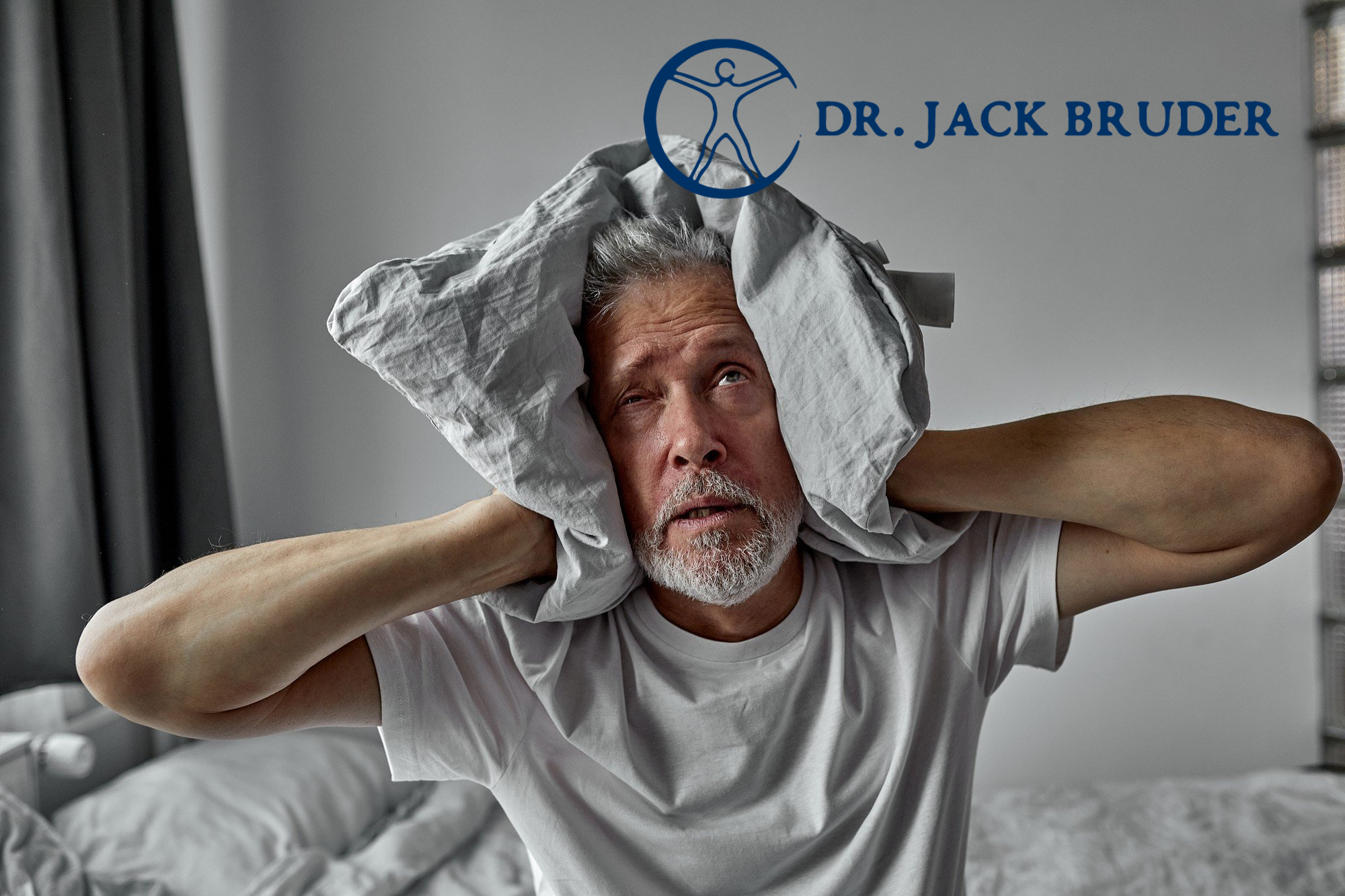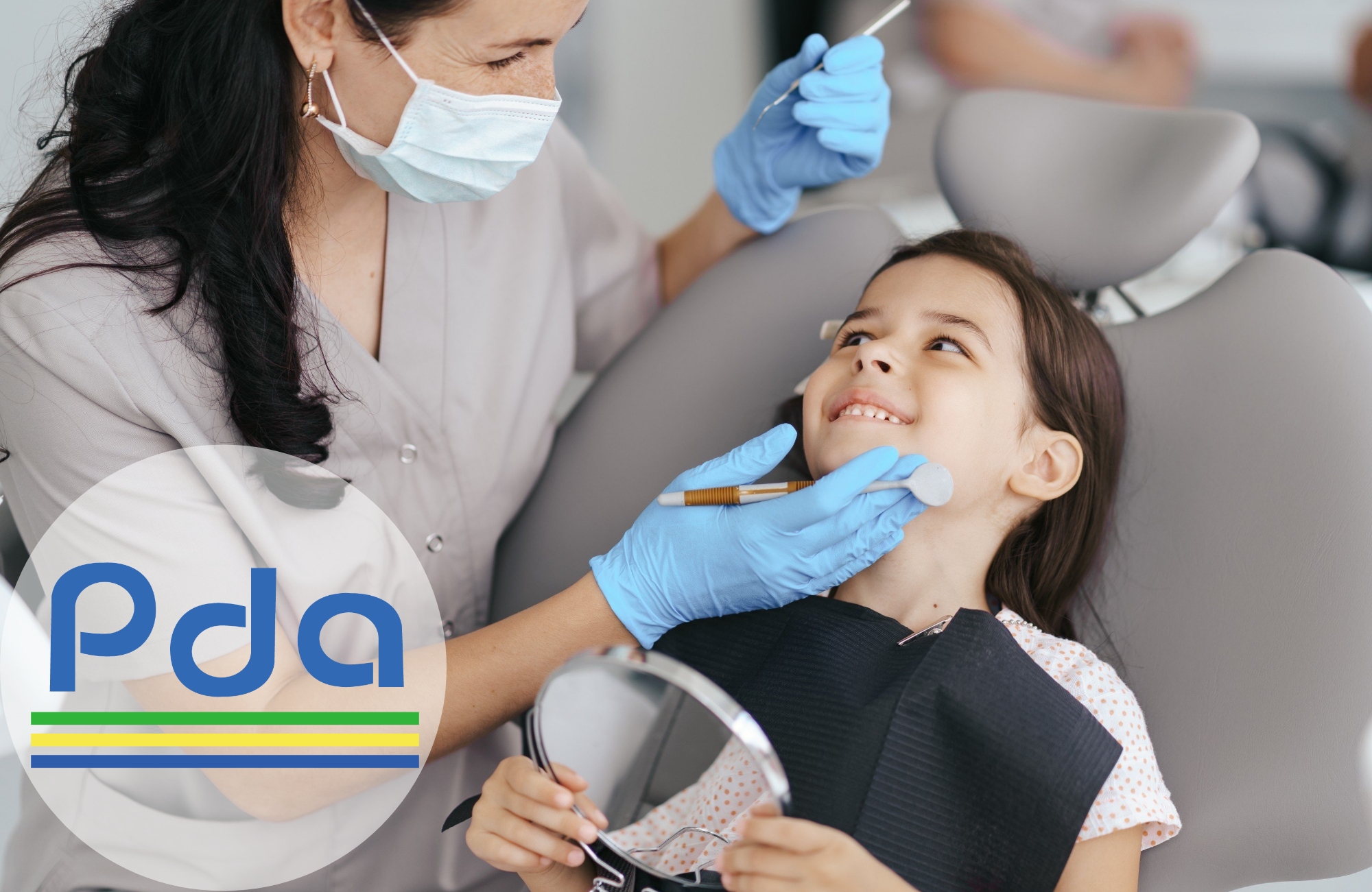Understanding the Connection Between Mental Health and Sexual Function
Sexual health and mental well-being are deeply connected, especially in older men, who often face compounding life stressors, career transitions, health challenges, caregiving responsibilities, or relationship shifts. These pressures don’t just weigh on the mind; they have tangible effects on the body, particularly on sexual performance and ejaculatory control.
Premature ejaculation (PE), one of the most commonly reported forms of male sexual dysfunction, often includes a significant psychological component. Many of the men I treat experience heightened performance anxiety, past trauma, unresolved emotional tension, or symptoms of depression and chronic stress all of which can accelerate arousal and reduce control during intercourse.
Evidence from organizations like the Centers for Disease Control and Prevention (CDC) continues to underscore the close relationship between mental distress and physical health. According to their findings, psychological stress is a leading contributor to reduced sexual function in men, affecting everything from libido and stamina to timing and satisfaction.
In a city as demanding as New York, these effects are often magnified by fast-paced lifestyles, sleep disruption, and limited time for self-care. That’s why more men’s health clinics in NYCincluding my own are taking a holistic, integrative approach, combining urological care with psychological screening and behavioral therapy.
This blended model allows us to treat premature ejaculation more effectively by addressing both the emotional drivers and physiological symptoms. Whether a man’s PE is linked to ongoing anxiety, a history of trauma, or current relational stress, acknowledging and treating the mental health dimension is key to long-term success. In many cases, simply creating a safe, supportive environment for emotional exploration is the catalyst for significant improvement not just in sexual function, but in overall quality of life.
Stress as a Trigger and Amplifier of Premature Ejaculation
Stress is one of the most common and underestimated contributors to premature ejaculation, especially in older men. Whether it’s acute or chronic, stress disrupts the delicate balance of the autonomic nervous system, which governs involuntary functions like heart rate, digestion and ejaculation.
In moments of acute stress, the body shifts into “fight-or-flight” mode, heightening sympathetic nervous system activity. This leads to increased arousal sensitivity and a significantly lower ejaculatory threshold, causing men to climax more quickly than intended. In contrast, chronic stress tends to produce long-term arousal dysregulation often tied to performance anxiety, overthinking, or internalized pressure which compounds the issue and makes it harder to regain control.
This neurological and psychological interplay is particularly relevant for older adults, many of whom are managing occupational demands, caregiving responsibilities, and health-related changes all at once. These stressors create a perfect storm for sexual dysfunction disrupting not just timing, but overall enjoyment and intimacy.
Men in these situations frequently seek help from experts like a urology doctor NYC to determine whether their symptoms are rooted in physiological issues, psychological stress, or most often a combination of both. That’s why a dual-focused evaluation is essential. By understanding how stress and biology interact, we can design a treatment plan that addresses the real underlying causes of PE, not just the symptoms.
With the right combination of medical therapy, stress management techniques, and emotional support, many patients experience dramatic improvements not only in ejaculatory control, but in confidence, relationship satisfaction, and overall well-being.

Depression and Performance Anxiety
Depression and performance anxiety are two of the most significant psychological contributors to premature ejaculation, especially in older men. While often overlooked, clinical depression can profoundly affect a man’s sexual health dampening libido, disrupting arousal patterns, and diminishing confidence. It can also lead to irregular ejaculatory timing, with some men experiencing delayed ejaculation and others reporting increased urgency and lack of control.
Performance anxiety, on the other hand, is a specific form of anticipatory anxiety that surfaces during or before sexual activity. It’s one of the most frequently cited causes of PE, particularly in men who have experienced negative sexual encounters or fear disappointing their partner. This mental pressure can lead to over-arousal and rapid climax creating a self-perpetuating cycle of worry, frustration, and avoidance.
Cognitive distortions like catastrophic thinking, fear of inadequacy, or rumination on past failures can quickly erode a man’s ability to stay present and regulate arousal. That’s why effective treatment requires a dual-pronged approach that addresses both the emotional and physical dimensions of the condition.
Common interventions include:
- Cognitive Behavioral Therapy (CBT): This structured, evidence-based form of psychotherapy helps men identify and reframe anxious, self-critical, or defeatist thought patterns that often underlie premature ejaculation. By targeting the mental triggers such as fear of failure, perfectionism, or past negative sexual experiencesCBT reduces the psychological pressure that accelerates arousal. It also provides practical tools to improve emotional regulation, enhance self-confidence, and support long-term behavioral change in both solo and partnered intimacy.
- Selective serotonin reuptake inhibitors (SSRIs): Frequently prescribed in low, controlled doses, SSRIs are a common pharmacological option for treating premature ejaculation. These medications work by increasing serotonin levels in the brain, which plays a critical role in delaying the ejaculatory reflex and supporting emotional regulation. In addition to improving ejaculatory control, SSRIs can help stabilize mood and reduce underlying performance anxiety, making them particularly effective for men whose PE is linked to both neurochemical imbalance and psychological stress.
- Behavioral techniques: These structured, non-pharmacological methods such as the stop-start and squeeze technique are designed to retrain the nervous system and build greater ejaculatory control through repeated practice. By enhancing body awareness, regulating arousal, and delaying climax, these exercises help men develop the confidence and physical skills needed to manage premature ejaculation more effectively. When guided by a trained provider or incorporated into a comprehensive care plan, behavioral techniques offer a powerful tool for long-term improvement without reliance on medication.
Many multidisciplinary clinics that focus on men’s mental health and sexual function coordinate closely with specialists like a urologist Manhattan to provide comprehensive evaluation. This is especially important when symptoms of depression or anxiety may be masking an underlying urological issue, such as prostate inflammation, testosterone deficiency, or nerve hypersensitivity.
Addressing both the emotional and physiological roots of PE leads to more sustainable outcomes restoring not only ejaculatory control, but also a man’s sense of self-confidence, intimacy, and psychological well-being.
Neurochemical and Hormonal Factors
Stress profoundly affects the brain’s neurochemical balance, particularly the levels of serotonin and dopamine, two neurotransmitters essential for regulating mood, arousal, and ejaculatory control. When men experience prolonged stress, serotonin levels often decline, disrupting the brain’s ability to moderate the ejaculatory reflex. This dysregulation frequently leads to faster ejaculation and diminished sexual satisfaction.
At the same time, chronic stress elevates cortisol, the body’s primary stress hormone. Elevated cortisol levels interfere with the hypothalamic-pituitary-gonadal (HPG) axis, suppressing testosterone production and exacerbating sexual performance issues. As highlighted by the National Institute of Diabetes and Digestive and Kidney Diseases (NIDDK), testosterone deficiency is a well-documented contributor to reduced libido, weakened erections, and poor ejaculatory control.
To fully assess these underlying factors, many specialized men’s health clinics incorporate:
- Hormonal panels to evaluate testosterone, cortisol, thyroid hormones, and prolactin: Comprehensive hormone testing is a key diagnostic tool in uncovering physiological contributors to premature ejaculation. These panels assess levels of testosterone (critical for libido and ejaculatory control), cortisol (a stress hormone that can suppress sexual function), thyroid hormones (which regulate metabolism and energy), and prolactin (which influences sexual satisfaction and recovery). Identifying hormonal imbalances allows for targeted treatment that supports both sexual performance and overall health.
- Neurotransmitter-sensitive interventions, such as SSRIs, when serotonin imbalance is suspected: When a patient’s symptoms suggest a serotonin deficiency or imbalance, selective serotonin reuptake inhibitors (SSRIs) may be introduced as part of a targeted neurochemical strategy. These medications help regulate ejaculatory timing by enhancing serotonin availability in the brain, which slows arousal and improves control. This approach is especially effective for men whose premature ejaculation is linked to neurotransmitter dysregulation, offering a clinically validated way to restore balance and reduce symptom severity.
- Psychological screenings to detect anxiety, depression, or trauma that may be compounding the issue: As part of a comprehensive evaluation, psychological assessments are used to identify underlying emotional or mental health factors that may be intensifying symptoms of premature ejaculation. Conditions such as generalized anxiety, clinical depression, or unresolved sexual trauma can significantly impact arousal regulation and ejaculatory control. Early detection through screening allows for timely, targeted intervention ensuring that both the emotional and physical components of the condition are treated in tandem for more effective and lasting results.
Men who also report difficulty achieving or maintaining erections may benefit from a joint consultation with an erectile dysfunction doctor NYC, ensuring that all hormonal, neurological, and psychological dimensions are addressed.
This integrated diagnostic strategy enables a more complete understanding of a patient’s sexual health and supports a treatment plan that’s scientifically grounded, precise, and truly personalized. By restoring neurochemical and hormonal balance, we can unlock significant improvements in both performance and confidence.
Sleep Disorders and Emotional Exhaustion
Chronic sleep deprivation is more than just a lifestyle inconvenience; it’s a serious health concern that can significantly impact sexual function, particularly in older men. When sleep quality suffers, so does the body’s ability to regulate essential systems, including the endocrine and nervous systems. This disruption often leads to a decline in testosterone production and weakened neural control over ejaculatory reflexes, both of which are critical for maintaining healthy sexual performance.
Sleep disorders, whether caused by stress, anxiety, medical conditions, or lifestyle habits frequently contribute to:
- Lowered libido and energy levels
- Increased sensitivity and reduced ejaculatory control
- Mood instability, irritability, and poor stress tolerance
These symptoms often go hand-in-hand with broader emotional exhaustion and may be mistaken for psychological dysfunction alone. That’s why a thorough assessment is crucial.
Men presenting with fatigue, irritability, or disrupted sleep patterns frequently seek help from clinics specializing in both psychological and urological health. When premature ejaculation or erectile concerns are involved, patients are often referred to an erectile dysfunction doctor Manhattan, who can conduct a full evaluation that includes screening for stress-induced sexual dysfunction and hormonal imbalances linked to poor sleep.
By addressing sleep health as part of a broader treatment plan, we improve not only sexual function but also emotional resilience, hormonal balance, and overall quality of lifekey pillars of sustainable men’s health.
Integrative Treatment Models
With a growing recognition of how stress, anxiety, and depression contribute to premature ejaculation, more clinics are adopting integrative models of care that bring together multiple specialties under a single, coordinated plan. These models are especially effective in addressing the complex, overlapping nature of sexual dysfunction where mental health, hormonal balance, and neurological sensitivity all play interconnected roles.
A comprehensive, multidisciplinary treatment approach may include:
- Psychiatric consultation and psychotherapy: These services play a critical role in identifying and addressing underlying mood disorders, unresolved trauma, or chronic emotional distress that may contribute to premature ejaculation. Through diagnostic evaluation and personalized therapy sessions, patients gain tools to manage performance anxiety, reduce psychological triggers, and improve overall mental well-being. This mental health support is especially valuable when PE is closely tied to stress, depression, or relational strain, and serves as a foundational component of any holistic treatment plan.
- Medication management involving antidepressants or anxiolytics: As part of a personalized treatment plan, low-dose SSRIs or anti-anxiety medications may be prescribed to help regulate the neurochemical imbalances that contribute to premature ejaculation. These medications are carefully selected and closely monitored to ensure optimal efficacy with minimal side effects. In addition to improving ejaculatory control, they often enhance emotional resilience, reduce performance anxiety, and support broader improvements in mood and sexual confidence especially when combined with behavioral or therapeutic interventions.
- Sexual function coaching: This form of targeted intervention focuses on building the practical skills and psychological confidence needed to manage premature ejaculation. Through structured exercises, guided feedback, and tailored strategies, sexual function coaching helps men improve physical control, strengthen body awareness, and overcome mental barriers related to performance. It also supports partner communication, fostering openness, collaboration, and emotional intimacy key components in achieving lasting sexual satisfaction and relational trust.
- Referrals to endocrinologists and urologists: When symptoms suggest possible hormonal imbalances or underlying urological conditions, timely referral to a specialist is essential. Endocrinologists can evaluate and manage issues like low testosterone, thyroid dysfunction, or metabolic disorders, while urologists assess prostate health, nerve sensitivity, and other physical contributors to premature ejaculation. These expert evaluations ensure that no contributing factor is missed, allowing for a more accurate diagnosis and a treatment plan that addresses the full scope of a patient’s health.
This multidisciplinary approach ensures that patients receive both mental health support and medical evaluation, increasing the likelihood of long-term success. Access to a seasoned urology doctor NYC or an experienced erectile dysfunction doctor New York City as part of this collaborative care model enables more precise diagnoses, targeted treatments, and a level of personalization that standard approaches simply can’t match.
By treating the **whole person not just the symptom**Integrative care models empower men to regain control, rebuild self-confidence, and restore intimacy in ways that are sustainable and deeply transformative.

Public Health Perspectives
Government health agencies increasingly acknowledge the profound connection between mental health and sexual dysfunction, particularly in aging populations. According to the U.S. Department of Health & Human Services (HHS), mental health conditions are highly prevalent among older adults and play a critical role in shaping overall wellness including cardiovascular health, hormonal regulation, and sexual function.
As these insights gain traction, public health institutions are calling for:
- Greater awareness of stress-related sexual dysfunction
- Early screening and intervention in primary care settings
- Cross-specialty collaboration between urologists, psychologists, and primary care providers
These efforts aim to reduce stigma, improve diagnosis rates, and ensure that men receive treatment for the full spectrum of issues contributing to conditions like premature ejaculation.
In urban centers like New York, where lifestyle stress, sleep disruption, and occupational pressure are especially common, this need is even more urgent. Older men in NYC are increasingly seeking support through comprehensive men’s health centers, places that integrate urologic care, mental health services, and behavioral therapy under one roof.
This shift reflects a broader trend: men are no longer viewing sexual dysfunction in isolation. Instead, they’re turning to trusted providers who understand how to bridge the gap between mind and body, offering care that is not only clinically advanced but also deeply personal and aligned with modern health realities.
Long-Term Outcomes and Preventive Strategies
Addressing premature ejaculation through a proactive, holistic approach doesn’t just relieve symptoms it lays the foundation for sustainable improvement in both sexual performance and emotional well-being. Long-term success often depends on the ongoing management of stress, mental health, and physical health factors all of which interact to influence ejaculatory control.
When stress reduction strategies, therapy, and medical support are combined, the results are significant. Key outcomes include:
- Increased intravaginal ejaculatory latency time (IELT): One of the most quantifiable outcomes of successful treatment for premature ejaculation is a significant extension of IELT, or the time between penetration and ejaculation. With consistent therapy, whether pharmacological, behavioral, or combined many men see their baseline timing double or even triple. This improvement not only enhances physical control but also contributes to greater satisfaction, reduced anxiety, and more fulfilling intimate experiences for both partners.
- Improved mood and libido: As targeted treatment reduces depression, anxiety, and performance pressure, many men experience a natural resurgence in sexual desire and emotional confidence. This improvement in mood often leads to increased motivation, stronger connection with partners, and a more positive outlook on intimacy. Whether through therapy, medication, or lifestyle changes, restoring mental well-being plays a critical role in reviving libido and making both solo and partnered sexual experiences more satisfying and enjoyable.
- Better partner communication: Effective treatment often leads to more open, supportive, and honest conversations about sexual health conversations that many couples may have previously avoided. This improved communication helps reduce shame, build relational trust, and foster a deeper emotional connection. As both partners feel more understood and involved in the healing process, it becomes easier to collaborate on goals, express needs, and enjoy intimacy without fear or tension. Strengthening this dialogue is often one of the most meaningful outcomes of comprehensive care for premature ejaculation.
- Reduced reliance on medication: As therapy, behavioral training, and lifestyle modifications take effect, many patients gradually experience greater self-regulation and control often leading to a lower need for medication or, in some cases, complete discontinuation. This progression reflects not only improved physical function but also enhanced emotional resilience and confidence. By addressing the root causes of premature ejaculation, rather than just masking symptoms, long-term treatment empowers men to sustain their results naturally and reduce dependence on pharmaceutical intervention.
Clinics that combine behavioral therapy with urologic expertise connecting patients to professionals like a urologist Manhattan or erectile dysfunction doctor NYCconsistently report higher patient satisfaction and long-term improvements in sexual health. This integrated model of care addresses the full spectrum of causes and consequences of PE, making it far more effective than medication alone.
Ultimately, the goal is not just short-term control, but long-term resilience, confidence, and sexual wellness, helping men at every stage of life enjoy intimacy on their own terms, without fear or limitation.
Awareness and Exploration
For older men experiencing premature ejaculation, especially those navigating significant life stressors or managing emotional health challenges, the first and most empowering step is seeking a professional evaluation. Too often, men dismiss PE as a minor inconvenience or assume it’s an inevitable part of aging when in reality, it’s a highly treatable condition with both physical and psychological dimensions.
Exploring care through a trusted urology doctor NYC, erectile dysfunction doctor NYC, or erectile dysfunction doctor Manhattan opens the door to a comprehensive, evidence-based treatment plan. These professionals are uniquely equipped to assess the full spectrum of contributing factors, from hormone levels and prostate health to relationship dynamics and mental well-being.
Access to reputable health information is also critical. Leading institutions such as:
- The National Institute of Diabetes and Digestive and Kidney Diseases (NIDDK) provides in-depth medical insights into male reproductive health.
- The Centers for Disease Control and Prevention (CDC) offer prevention-focused guidance on men’s wellness, stress management, and lifestyle optimization.
- The U.S. Department of Health & Human Services (HHS) delivers up-to-date research and resources on sexual health, hormonal aging, and integrated care models.
Together, professional support and educational resources empower men to make informed, proactive decisions about their health. Whether you’re newly experiencing symptoms or seeking better answers after years of frustration, taking that first step toward specialized, compassionate care can be the beginning of renewed confidence, intimacy, and control.





